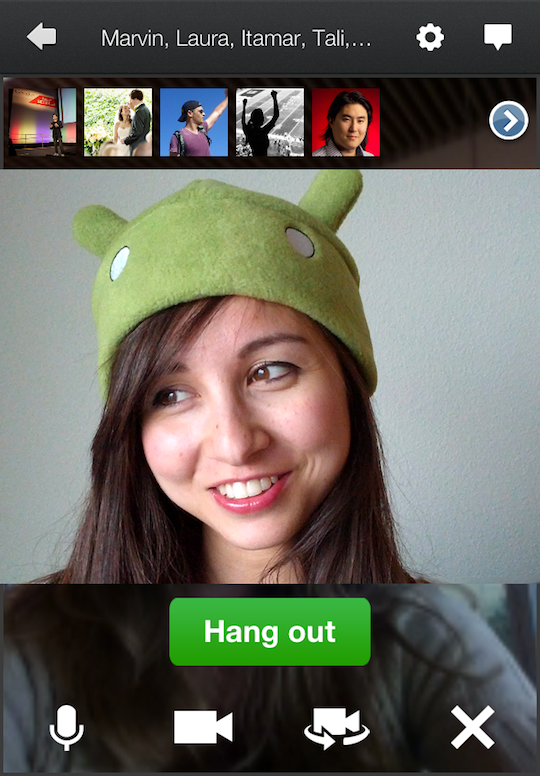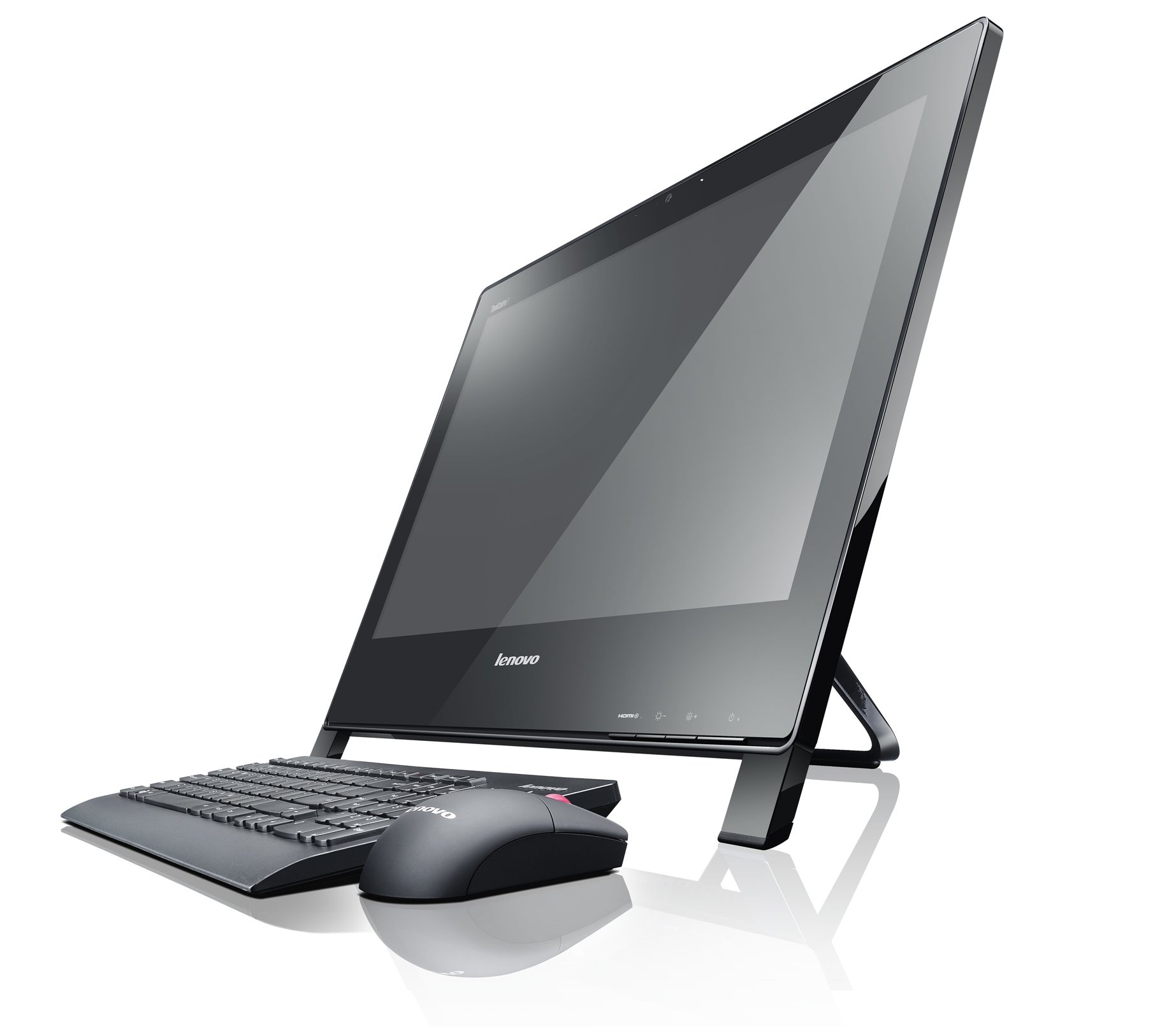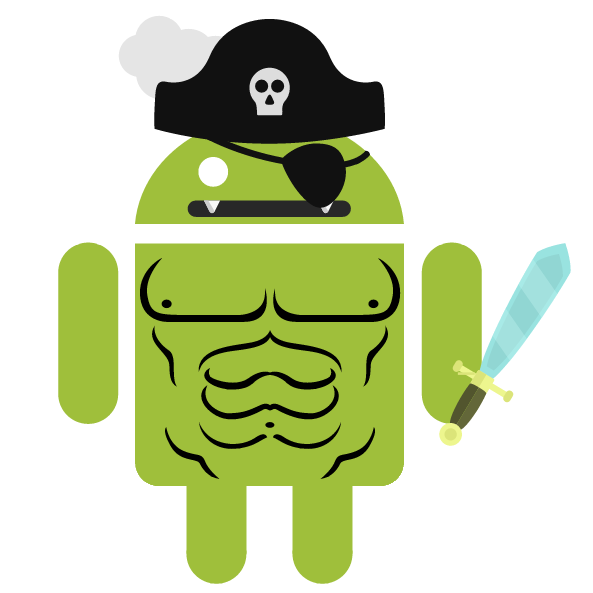
iPhone camera app learns your appearance by your Facebook pics
In the three months ending on March 31, 2012, there were more than 300 million photos uploaded to Facebook every single day. Not only is it a staggering amount of content to organize, but it is also a huge stockpile of graphical data that can actually be put to use.
A new iPhone camera application was released on Thursday to take advantage of this mass of data.

Don't be phished by tweet: 'Hey some person is saying horrible things about you'
Does reputation matter to you? Are you concerned what people say about you when you're not around? Perhaps you want to know what crap anonymous commenters post about you across the InterWebs? If the answer is "Yes" to any of these, you might be vulnerable to this tweet: "Hey some person is saying horrible things about you". Resist the temptation.
I got this one Monday and again yesterday. I started to ignore the tweet, but it came as direct message. So I clicked the shortened link, which brought me to the Twitter home page with message log-in failed. Immediately, I panicked, intuiting this likely was a phishing scam. Sure enough, Chrome revealed the fake URL and I backed off. But some other people haven't been so lucky, as Gartner analyst Mark McDonald confesses today. In reading his post, I realized it would be public service to share a bit about his experience and to warn others.

Use Blat to set Windows event emails from the command line
When you’re not around to monitor a PC then it’s often useful to get notifications of its key events. And so you might like to know when a particular program starts or ends, perhaps, or when the system closes down or restarts.
Some applications understand this already. Many backup programs are able to send email to let you know when a particular job has completed, for instance: very convenient. And Windows Task Scheduler can also send emails for a host of different events. But if that’s not enough then you can always manually extend your system with Blat, a simple command line tool which allows you to send emails as appropriate from your own scripts and batch files.

Dell looks to the cloud to stay relevant in the enterprise
Dell continued to expand outside of its traditional PC-based business this week, making two separate announcements that symbolize a larger emphasis on services -- especially for the cloud. The Allen, Texas based company has introduced a Desktop-as-a-Service offering through a partnership with Desktone, as well as a new offering aimed at moving their SAP solutions to the cloud.
The moves signal a bigger business shift for a company that for most of its 26-year history has focused on physical hardware. At the same time, it's a sign of the times in enterprise environments, a move towards virtualization and cloud-based services.

Software performance matters
The issue with the soon-to-come generation of Windows mobile computers (tablets) of performance versus productivity, when it comes to software development, looms on all of us programmers who desire to write software for Windows 8. As a longtime Windows API programmer I appear to be in the minority, but I just can't help but ask the question: "Do programmers just not get it?"
I have watched the video of a talk by Microsoft's Herb Sutter entitled "Why C++?" more than once and even though I don't use C++, I just can't help but appreciate his points about the importance of performance, especially when it comes to the next generation of mobile devices.

Google+ puts iOS ahead of Android
May 9 is, in a way, a watershed day for Android -- and that's not necessarily a good thing. Many developers I communicate with repeatedly say they confront the same quandary: Android or iOS first? Maybe they choose to develop for iOS, only to ask: Android or iPad next? Google is a software developer, too, and this day put its priorities in order with a stunning iOS-first update. The new iPhone app for social network Google+ is stunning, breathtaking, immersive and makes the already great experience on Ice Cream Sandwich seem outdated -- although some of the best visuals migrate to iOS.
In a way, Google sets the wrong example for its development partners by putting iOS ahead of Android. But why not? The iOS install base is larger than Android (365 million to 300 million at last reveal); countless analyst surveys show that iOS device users are more connected and engaged; and fragmentation isn't a problem since the majority of the iOS install base is on the newest version (versus about 5 percent of Androids). Google wants Plus to succeed in a big way, so improving the experience everywhere should be a priority. But iOS first, for the next big thing, is the priority.

Lenovo debuts Ivy Bridge family of ThinkCentre desktops and all-in-one PCs
PC and Information Technology company Lenovo on Wednesday announced its new lineup of ThinkCentre all-in-one PCs based around the third generation of Intel vPro Core processors (Ivy Bridge), with models targeting consumers, small- to medium- sized businesses, and the public sector.
The flagship ThinkCentre model is the Edge 92z, which has a 21.5 inch in-plane switching (IPS) LED display with 10-point multitouch capability and Wireless Display (WiDi) mode. At 2.5" in thickness, Lenovo says this is the slimmest all-in-one PC Lenovo has created thus far. Processors can be configured up to an Intel Core vPro i7, and the starting price will be approximately $699 when they come out in the U.S. this July.

Is Adobe Creative Cloud a good value?
It's the question I've asked myself since Adobe unveiled the subscription service in late April; it launches May 11. For me, $49.99 a month is steep. But $29.99 strongly tempts. I'm eligible for that lower pricing, and you might be, too. But to get either price, Adobe requires 12-month commitment -- and gets 50 percent still, if you cancel early. Month-to-month option is $79.99 per 30 days, or $959.88 yearly versus $599.88 for standard annual subscription pricing.
You get a lot regardless of pricing plan -- more than 20 products now and others planned (I'm waiting for Photoshop Lightroom 4.x, Adobe), offering huge savings that surely will appeal to someone. For starters: student, sole-proprietorship or small business. Among the included products and list price, if purchased (rather than subscribed): Acrobat Pro ($499), After Effects ($799), Flash Pro ($599), Illustrator ($599), Photoshop Extended ($699) and Premiere Pro ($799).

This is the bubble as we know it
Over the last eighteen months, there has been a lot of public concern about whether we're in the midst of another tech bubble. People outside of Silicon Valley saw the billion-dollar exit for a consumer Internet company that was around for less than two years (Instagram), and couldn't believe such easy money was being made.
Golly Gee Whiz, it must be 1995 all over again!

Android malware woes look a lot like Windows'
McAfee says that Android malware is taking a worrisome turn, with cybercriminals mimicking popular strategies used against Windows. The latest attacks tap IRC bots, where the malware gets further operating instructions from an Internet chatroom.
Called Android/Multi.dr, the attack masks itself as the game Madden NFL 12. Multi.dr is comprised of three separate components, including a root exploit, an IRC bot, and SMS Trojan.

Need rich photo editing without the bloat? Try Pixelitor
If, like us, you’ve tried more than your share of image editors, then you’ll know many of them are depressingly similar. Especially when it comes to filters. All too many developers seem to think they can get by with a simple sharpen, blur, emboss and so on, when most users now expect far, far more.
Fortunately there are also plenty of image editors that manage to deliver plenty of filtering power, though -- and the Java-based Pixelitor is a particularly interesting example. Its compact size (the entire program is contained within a single 1.04MB JAR file) suggested we shouldn’t expect too much, but the reality proved very different, it’s packed with essential filtering functionality.

Ad-Aware Free Antivirus+ 10.1 advances, leaves Windows 2000 behind
The jump to version x.1 of a program may not seem like particularly big news, but with the release of Ad-Aware Free Antivirus+ 10.1 there is a surprising amount to take in. For anyone who has taken the security step of installing more than one antivirus tool, you should now find that, which Norton and AVG at least, Ad-Aware no longer produces a BSOD, but there have also been more important changes to the engine of this antivirus and firewall tool.
A major concern with any antivirus tool is the impact it has on your system and in the latest release there have been tweak made to the scanning engine that mean that schedule scans are performed faster than in the past. The program has already undergone something of a makeover but there have now been additional improvements made so the app as a whole feels generally snappier – this is in addition to faster scan completion.

Apache releases big OpenOffice upgrade -- get it now!
The Apache Software Foundation announced the release of Apache OpenOffice 3.4, the first new build of OpenOffice since it was handed to the ASF by Oracle after development stalled when many contributors defected across to The Document Foundation’s LibreOffice, which is also based on OpenOffice.
Version 3.4’s major features can be found under the hood -- vastly improved startup times, improved OLEObject handling, better chart rendering and support for scalable vector graphics are the most notable changes in this new release. Also implemented is ODF 1.2 encryption, while the suite is now licensed under the Apache License 2 engine.

Fire all the lawyers
Could it be true? Are the courts finally tired of the never-ending patent disputes in Silicon Valley? If the statements made by two judges over the past week are an indication, yes.
This frustration was on display Monday in a Seattle court room as Federal Judge James Robart accused both Microsoft and Motorola of "hubris" and "arrogance" in their ongoing patent dispute, and using the courts to gain the upper hand in licensing negotiations, according to GeekWire's Todd Bishop, who was on hand for the proceedings.

The personal cloud is all about context
Gartner is back thumping about how the cloud will replace the PC as personal hub by 2014, and, whoa, that's not exactly so far away. I wrote the "ding dong, the PC's dead" last month. After identifying five trends then, the analyst firm today highlights three things cloud vendors had better watch out for.
Simply stated: "Mobility and location"; "platform independence"; and "seamless synchronization". That aptly describes what the cloud-connected -- oh, post-PC, if you insist -- era is all about: Personal computing anytime, anywhere on anything. However, many cloud offerings fall short of that definition and the three must-have characteristics Gartner defines.



